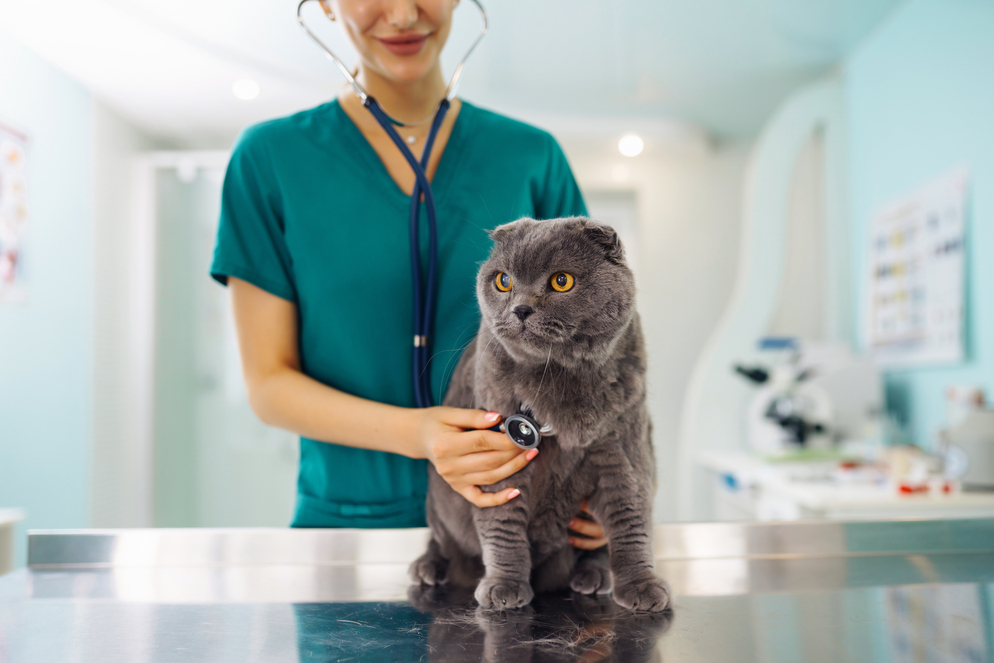How to Recognize Acetaminophen Toxicity in Cats

Did you know that acetaminophen, an ordinary human drug often used to control pain and fever, is toxic to cats? Unfortunately, this is a common issue due to pet parents attempting to treat their cat’s pain at home. Or, in some cases, the cat gets into their owner’s medication. Cats can’t efficiently metabolize acetaminophen, which makes them more vulnerable to toxicity. It’s also worth noting that cats develop toxicity at much lower doses than dogs.
What are the signs of acetaminophen toxicity in cats?
Once a cat ingests acetaminophen, signs of toxicity may develop in as few as one to four hours. Acetaminophen can cause:
- A decrease in the red blood cell’s ability to carry oxygen
- Red blood cell changes within 4-12 hours
- Liver damage
As a result, your cat may:
- Appear depressed or weak
- Present with rapid breathing or panting
- Have a high heart rate
- Have abdominal pain
- Vomit or drool
Your cat may also stop eating. Additionally, their mucous membranes, such as the gums or tissue around the globe of the eye, may develop a bluish color or chocolate brown color. In some cases, cats with acetaminophen toxicity present with swelling in the face, paws, and limbs several hours after ingesting the drug.
How is acetaminophen toxicity in cats treated?
The most important thing you can do to treat acetaminophen toxicity is never to give your cat acetaminophen or leave pills where your curious cat can get into them. But accidents happen.
Early decontamination and treatment can decrease the risk of severe toxicity. If you know your cat has ingested acetaminophen within the last few hours, please call the Pet Poison Helpline at 855-764-7661 and take your pet to your veterinarian, where the vet can induce vomiting. Inducing vomiting at home should never be attempted. It can cause severe stomach irritation. Once vomiting is controlled, your veterinarian may administer activated charcoal. Activated charcoal can decrease the absorption of acetaminophen by your cat’s gastrointestinal tract. Again, activated charcoal should only be administered by your vet due to the risk of aspiration into the lungs or life-threatening changes in sodium occurring.
Your cat may be hospitalized based on the amount of acetaminophen it ingested. If that’s the case, your vet may give IV fluids and an antidote for acetaminophen toxicity known as N-acetylcysteine. Your vet may also provide other medications, such as Vitamin C and liver protectants. If liver damage occurs or a decreased ability of the red blood cells to carry oxygen happens, more intensive care will be required.
Follow-up care for acetaminophen toxicity in cats
Most cats must continue medications for several weeks to protect their liver while at home recovering. It would help if you also were prepared that your vet will want to monitor your cat’s liver enzymes for several days or weeks, depending on the severity of the case. Liver enzymes are monitored to understand if any liver damage or scarring will affect long-term liver function in your cat after they’ve recovered.
If your cat may have ingested acetaminophen in the last few hours, please call the Pet Poison Helpline.
Pet Poison Helpline, an animal poison control center based out of Minneapolis, MN, is available 24/7 for pet owners and veterinary professionals that require assistance treating a potentially poisoned pet. The staff provides treatment advice for poisoning cases of all species, including dogs, cats, birds, small mammals, large animals and exotic species. As the most cost-effective option for animal poison control care, Pet Poison Helpline’s per-incident fee includes follow-up consultations for the duration of the poison case. Pet Poison Helpline is available in North America by calling 800-213-6680. Additional information can be found online at www.petpoisonhelpline.com

